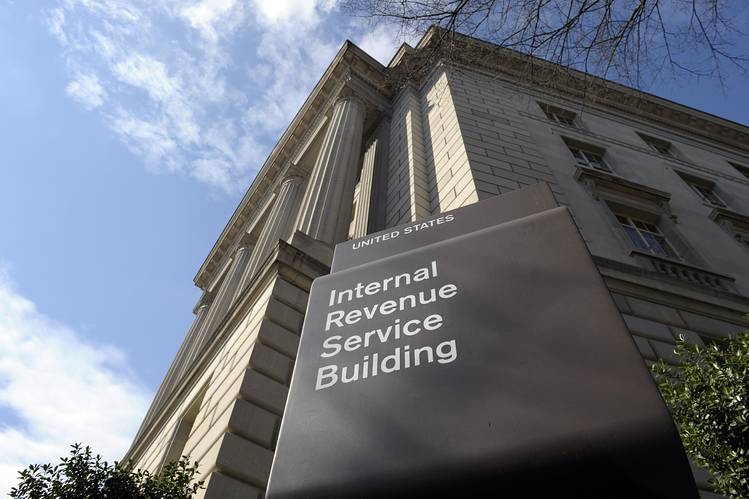IRS Statute of Limitations
IRS & The Statute of Limitations
By Christian Reeves
Tax Attorney
The bottom line is that the IRS usually has 10 years to collect from you once a tax return is filed, and generally has 3 years to audit your return to assess additional tax.
Understanding the 10 year collection statute is important when negotiating an installment agreement or Offer in Compromise with the IRS. For example, if there is only one year remaining on the collection statute, offering to settle the debt for 75% is probably not a good deal for the taxpayer. It may be better to delay and enter in to an installment agreement for the remaining collection period.
Here are the basics:
Tax Return Audits
The statute of limitations limits the time during which an action can be brought by the IRS for an audit and the time for IRS tax collection activities. Generally, there is a 3-year statute of limitations when the IRS audits a tax return and a 10-year statute of limitations for the IRS to collect tax.
Under section 6501(a) of the Internal Revenue Code (Tax Code) and section 301.6501(a)-1(a) of the Income Tax Regulations (Tax Regulations), the IRS is required to assess tax within 3 years after the tax return was filed. This means that, unless special circumstances apply, the IRS must assess a new tax as the result of an audit within 3 years of the return being filed.
Under section 6501(e) of the Tax Code and section 301.6501(e)-1 of the Tax Regulations the statute of limitations is 6 years if the taxpayer omits additional gross income in excess of 25% of the amount of gross income stated in the tax return filed with the IRS. This is known as the substantial understatement assessment period because it comes in when the taxpayer understates their income by 25% or more on the return.
If the tax return was prepared by the IRS as a Substitute for Return (SFR), under the authority of section 6020(b) of the Tax Code, the statute of limitations does not apply. See section 6501(b)(3) of the Tax Code and section 301.6501(b)-1(c) of the Tax Regulations. This is because an SFR is generally based on the information the IRS has in its computers, and without the participation of the taxpayer.
Also, the statute of limitations does not apply in the case of a false tax return or fraudulent tax return filed with the IRS with intent to evade any tax. See section 6501(c)(1) of the Tax Code and section 301.6501(c)-1 of the Tax Regulations. In other words, if you commit tax fraud, or intentionally attempt to defraud the IRS with the filing of your return, you do not receive the benefit of the statute of limitations.
Statute of Limitations on the Collection of Tax
As of November 5, 1990, the collection statute of limitations is 10 years. Prior to this date, the collection period was six year. Basically, the IRS has 10 years to collect from you from the date you file your tax return or the date tax is assess. Tax is usually assessed after an audit is completed and all of your rights of appeal have been exhausted, or you agree that the results of the audit are correct. Tax is also assessed when the IRS files a SFR. Note that, if you do not file your tax return, and the IRS does not file an SFR, then the collection statute never begins to run.
The 10 year statute of limitations can be extended by agreement between you and the IRS provided the agreement is made prior to the expiration of the 10 year period. See section 6501(c)(4) of the Tax Code and section 301.6501(c)-1(d) of the Tax Regulations.
In rare instances, the IRS can go in to Federal court and extend the statute by 10 years without an agreement with the taxpayer. This is very uncommon, thus not discussed in detail here.
For additional information, see Section 6502(a)(1) of the Tax Code and section 301.6502-1 of the Tax Regulations. Court proceedings must also be started by the IRS within the 10 year statute of limitations. Section 301.6502-1(a)(1) of the Tax Regulations.
Tolling of the Collection Statute
The collection statute is tolled, or placed on hold, any time the IRS is prohibited from collecting from you. There are two common instances where the statute is tolled:
- The collection period is tolled while you are in bankruptcy. This may be a few weeks, a few months, or even a few years, depending on your situation.
- The collection period is tolled while you have an Offer in Compromise pending with the IRS. Assuming your Offer is reasonable, it generally takes 6 to 12 months for it to be processed by the Service, during which time all collection actions are on hold.
It is important to note that, while the IRS is prohibited from collecting while the statute is tolled, interest and penalties continue to accrue. It is common for someone to exit bankruptcy with a much larger tax debt than they entered with.
Make sure you understand the starting date for the running of the statute of limitations, any exceptions to the tolling of the statute of limitations, the last day that the IRS can audit a tax return, and the last day that the IRS can collect overdue tax on a tax return.
Because the IRS is unable to collect from you once the 10 years is up, the collection statute can be a very valuable tool for the knowledgeable taxpayer the Offer in Compromise and Installment Agreement program. Once the statute expires, the debt is eliminated and any installment agreement terminates. An installment agreement that does not pay off the tax in full is called a partial pay agreement.
Statute of Limitations on Taxpayer to Claim a Tax Refund
A taxpayer may file a claim for a tax refund of an overpayment of any tax within 3 years from the time the tax return was filed with the IRS or 2 years from the time the tax was paid to the IRS, whichever period is the longer. If no tax return was filed with the IRS, the claim may be made within 2 years from the date that the tax was paid to the IRS. See section 6511(a) of the Tax Code.
In this instance, “tax paid” includes amounts taken by the IRS in a bank levy or wage garnishment. This means that, if your account is levied as the result of a tax assessment from a SFR, you should immediately prepare your delinquent return to ensure you will get any refund due.
This 3 year statute can be quite harsh on taxpayers who have taxes withheld from their paychecks but never file a tax return. I once filed a return for a client who lost a $55,000 refund because she came to me 1 week after the refund statute expired.




